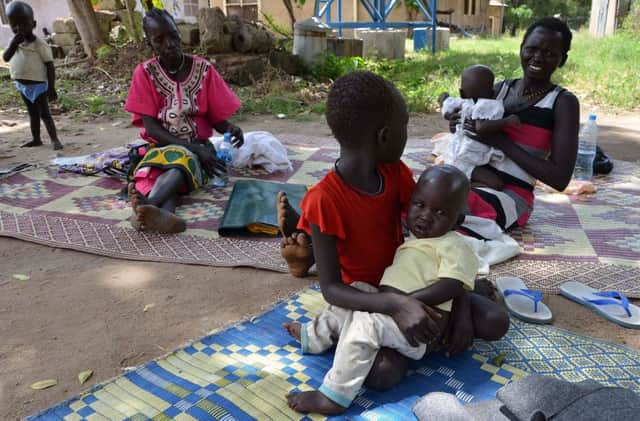Potential child malaria vaccine ‘a milestone’


There is currently no licensed vaccine against malaria, which claimed the lives of about 584,000 people in 2013, according to the World Health Organisation (WHO).
Malaria is caused by parasites, which are transmitted through the bite of infected mosquitos, with 90 per cent of deaths occuring in the WHO African region among children under the age of five.
Advertisement
Hide AdAdvertisement
Hide AdThe study – which is published today in the Lancet journal – reveals that the vaccine, known as RTS,S/AS01, was 46 per cent effective against clinical malaria in children and around 27 per cent among infants, after 18 months of testing. If it is approved by the European Medicines Agency (EMA), then it could be available by October this year, said Brian Greenwood, corresponding author and professor of clinical tropical medicine at the London School of Hygiene and Tropical Medicine.
He said: “If licensed, RTS,S/AS01 would be the first licensed human vaccine against a parasitic disease.”
Researchers tested more than 15,000 infants aged between six to 12 weeks, and children aged from five to 17 months, from 11 sites across seven sub-Saharan African countries, including Burkina Faso, Ghana, and Mozambique.
They then followed this up with further doses over up to 30 months and assessed the impact of a fourth booster dose.
The scientists found the vaccine was more effective against malaria in children than in young infants, but waned over time in both groups.
However, protection was prolonged by a booster dose, as those who received the booster had 32 per cent protective efficacy against severe malaria and 35 per cent against malaria-associated hospitalisations.
Professor Greenwood said: “Despite the falling efficacy over time, there is still a clear benefit from RTS,S/AS01.
“An average 1,363 cases of clinical malaria were prevented over four years of follow up for every 1,000 children vaccinated, and 1,774 cases in those who also received a booster shot.
Advertisement
Hide AdAdvertisement
Hide Ad“Over three years of follow-up, an average 558 cases were averted for every 1,000 infants vaccinated, and 983 cases in those also given a booster dose.
“Given that there were an estimated 198 million malaria cases in 2013, this level of efficacy potentially translates into millions of cases of malaria in children being prevented.”
Researchers found there were complications as meningitis occurred more frequently in children given the vaccine and produced more adverse reactions than the control vaccines.
The find has been welcomed by experts, although the WHO warned funding should still cover malaria control measures such as insecticidal nets.
Professor Mike Turner, head of infection at the Wellcome Trust, said: “It has taken 20 years to get here and, while the levels of protection the vaccine offers against clinical malaria may seem relatively low, they are better than any other potential vaccine we currently have.”